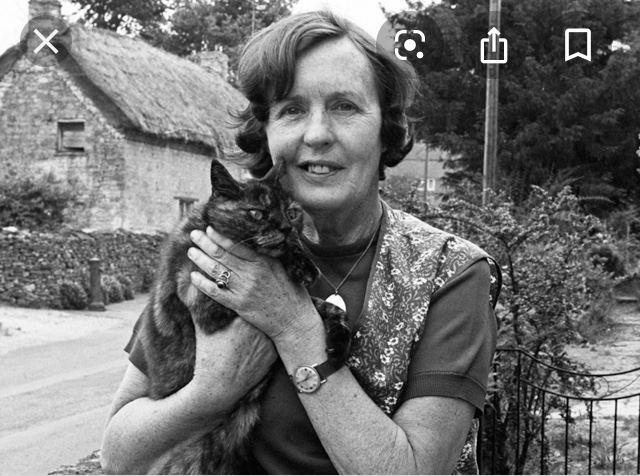Barbara Pym
Enter your text here...
A Pym fan's confessions
If you've never heard of Barbara Pym, you're not alone. If you have, you were probably one of the 100-plus people at the North American Barbara Pym Society Conference at Harvard Law School on March 17.
Pym was a British writer of the mid-20th century who chronicled the lives of unassuming women and unsuitable men. Her novels are slender social comedies filled with quiet humor and the comfort of ordinary things.
She was a keen observer of the foibles of human nature and the difficulty of relations between the sexes. The Church of England looms large in most of the books but is less a religious presence than the social construct around which many of the characters' lives are lived.
It may be true that we Barbara Pym readers are all just a little bit odd but it is an oddity that we embrace and celebrate. Tom Sopko, North American conference organizer, noted in his opening remarks that Barbara felt that "odd people are more interesting to observe."
Indeed, he continued, that "there is an inescapable slight oddity to many Pym characters," implying that this may well describe her fans as well.
Point taken. When challenged, most of us could identify any quotation from any character in any of the 11 books; advanced BP fans could then go on to discuss its social significance and relation to Barbara's own life.
We're not nerds, exactly, we're simply people who feel, as Barbara did, that "the small things of life (are) often so much bigger than the great things ... the trivial pleasures like cooking, one's home, little poems especially sad ones, solitary walks, (and) funny things seen and overheard."
The Barbara Pym Society began in 1994 and meetings are held in both England and America. For me and the other Pym fans, attending the conference is like visiting Mecca. It is glorious to be among a room full of people who understand, for instance, the significance of the vulgar, chunky mug that Miss Caton drinks her tea out of in "The Sweet Dove Died" (it's a nod to class differences in Britain. "No thank you, Miss Caton - I really couldn't drink it - and where did you get that terrible cup?").
Indeed, tea itself - the drinking or not drinking, the making, and the sharing, is a central theme in all of the novels. This quote from "Excellent Women" captures it perfectly: "Perhaps there can be too much making of cups of tea, I thought, as I watched Miss Statham filling the heavy teapot. Did we really need a cup of tea? I even said as much to Miss Statham and she looked at me with a hurt, almost angry look, 'Do we need tea? she echoed. 'But Miss Lathbury ...' She sounded puzzled and distressed and I began to realize that my question had struck at something ... fundamental. It was the kind of question that starts a landslide in the mind." Exactly.
Barbara passed away in 1980 but any true fan can rattle off the key points of her life. She was born in 1913 and attended St. Hilda's College, Oxford. It was there that she met Henry Harvey, the man who would be the unrequited love of her life, and the inspiration for the self-involved rector in "Some Tame Gazelle", the novel in which she imagines herself and her university friends as aging characters in a English village.
She joined the Women's Royal Naval Service during World War II (as did Mildred Lathbury of "Excellent Women", who recalls their "ill-fitting white uniforms").
Following the war, she worked as an assistant editor at the journal Africa, and learned about the anthropologists who populate her novels along with curates and vicars. She continued her writing and found modest success and acclaim. When the Sixties came along, however, her stories of quiet women fell out of favor. Pym fans know this as "the wilderness years," when she despaired of seeing her work in print again.
Salvation came in the figure of English poet Philip Larkin, who in 1977 called her "the most underrated novelist of the 20th century." Thus, began her resurrection and she went on to write several more books. Barbara never married, and always fell for the wrong men -married, gay or simply unable to reciprocate her feelings.
It may have been her inability to commit, her repeated yearning after the wrong person, which informed so much of her writing. She is obviously describing herself in this quote from Jane and Prudence: "For although she ... was very much admired, she had got into the way of preferring unsatisfactory love affairs ... so that it was becoming almost a bad habit."

Her unwillingness to give up her position as an observer of life rather than a full participant helped to give us her wry and bittersweet novels.
Many people would probably find Pym novels supremely dull. But it's nice to know there are a handful of oddballs like myself who want to read about damp English churchyards and fairy cakes, and who will always treasure the dry humor and sad wisdom of one unassuming excellent woman.
Published by the Daily News of Newburyport, March 2018
